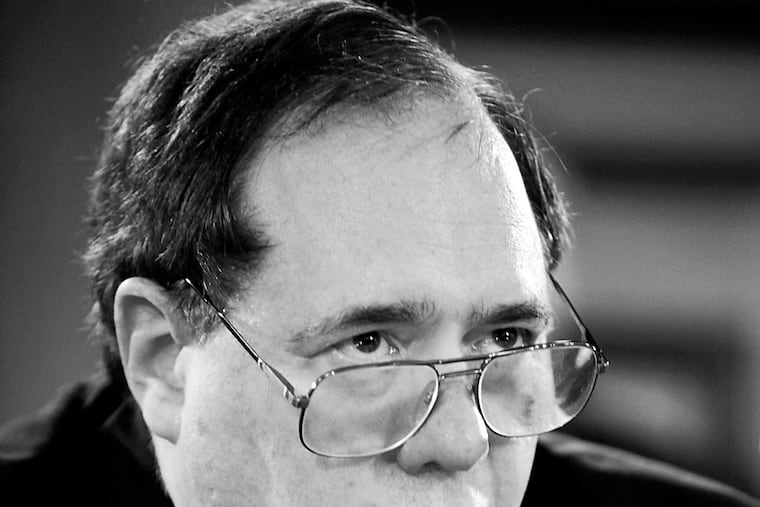Pa. budget in peril as House GOP backs off
HARRISBURG - Pennsylvania senators trickled into the Capitol yesterday to continue work toward a budget deal, a job made more challenging by the House Republicans' decision in recent days to walk away from negotiations that have stretched on for months.

HARRISBURG - Pennsylvania senators trickled into the Capitol yesterday to continue work toward a budget deal, a job made more challenging by the House Republicans' decision in recent days to walk away from negotiations that have stretched on for months.
The main item on the Senate's evening agenda was an Appropriations Committee vote on a spending plan supported by leaders and Democratic Gov. Wolf. But major uncertainties remained, from the mix of taxes to pay for it to the details of changes to the state-run liquor store system and the two major public-sector pension plans.
Even the Appropriations agenda was a work in progress, said the chairman, Sen. Pat Browne, R-Lehigh, in late afternoon.
House Republicans, he said, "have to work out their own issues, and hopefully, in the end, we can come to an agreement," Browne said.
A House session that had been scheduled for 3 p.m. was abruptly canceled earlier yesterday to give leaders more time to develop an alternative budget, one that assumes no changes will be made to the liquor system or pension plans, said House GOP spokesman Steve Miskin.
"One thing the caucus made very clear, we definitely don't have 102 votes for the revenue package," Miskin said.
The collapse in negotiations, coming more than five months into the state's fiscal year, had some wondering what will come next.
House Republican leaders were meeting late Sunday afternoon, and Wolf was in the building to meet with his own staff.
"Pensions are too important for us to throw that overboard," said Drew Crompton, a leading Senate Republican aide.
The failure of Wolf and the Republicans who control both chambers to reach an agreement has put financial pressure on schools, human services and others that depend on state funding.
Rep. Mark Cohen, D-Philadelphia, said he believes the most likely scenario will be passage of a status quo budget, which he said would ignore unmet needs.
"The Republicans don't want to put up votes for anything," Cohen said. "I think they have to do a lot of rethinking."
Sen. Vince Hughes, D-Philadelphia, the ranking Democrat on Appropriations, said public frustration over the lack of a deal is growing.
"People are saying 'Get this done, but do the right thing,' " Hughes said.
County governments, school districts and social service providers have borrowed millions of dollars, cut staff or curtailed services to cover the lack of state funding.
Wolf and Senate Majority Leader Jake Corman, R-Centre, are standing behind a deal, with many details not made public, for a roughly $30.7 billion budget with a $350 million spending increase for public schools.
It would require several hundred million dollars in new revenue, a key element that appears to remain unresolved.